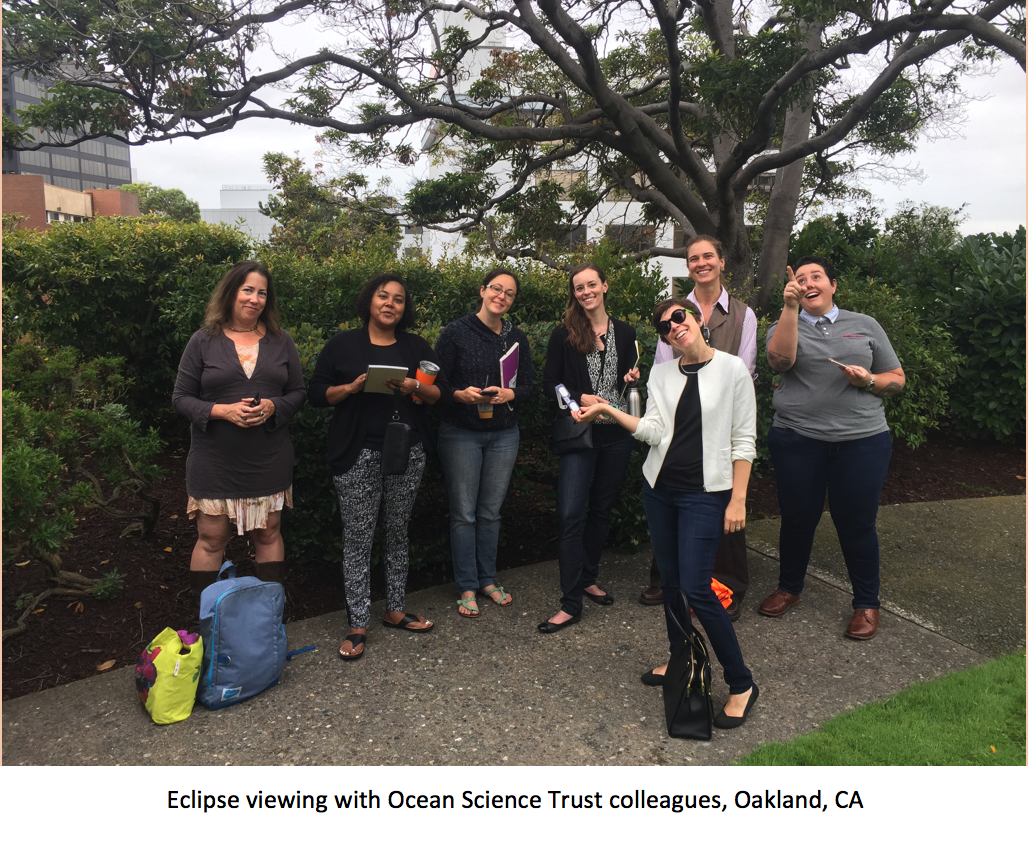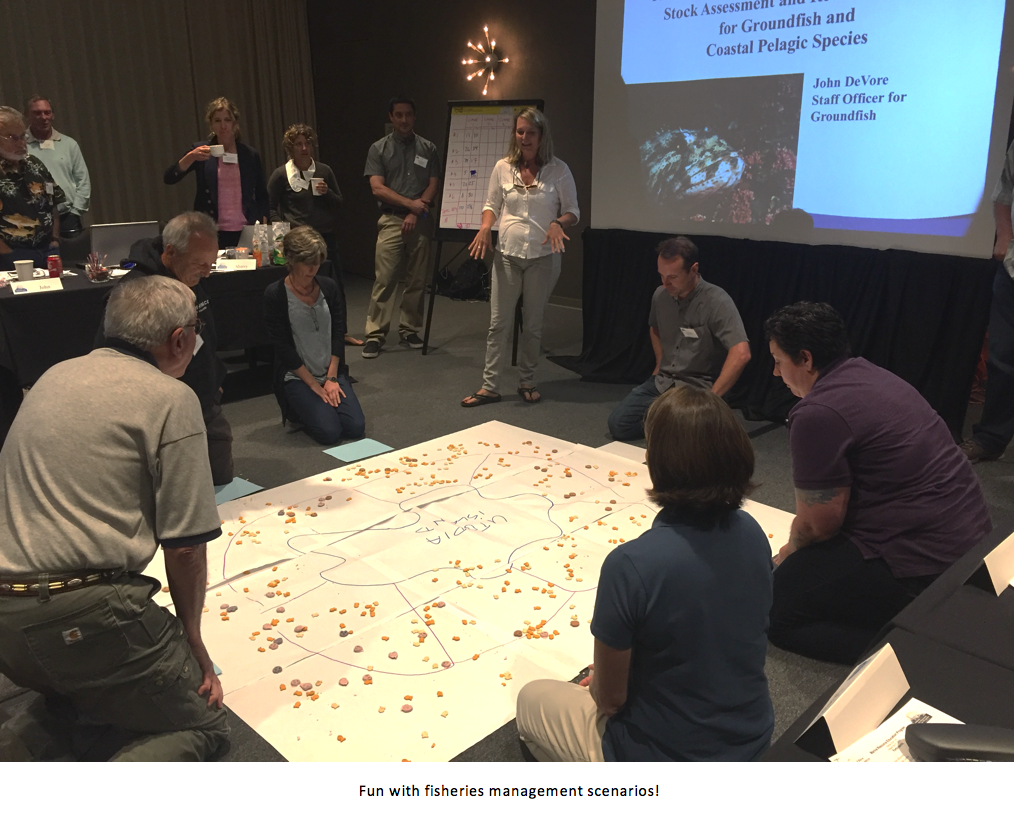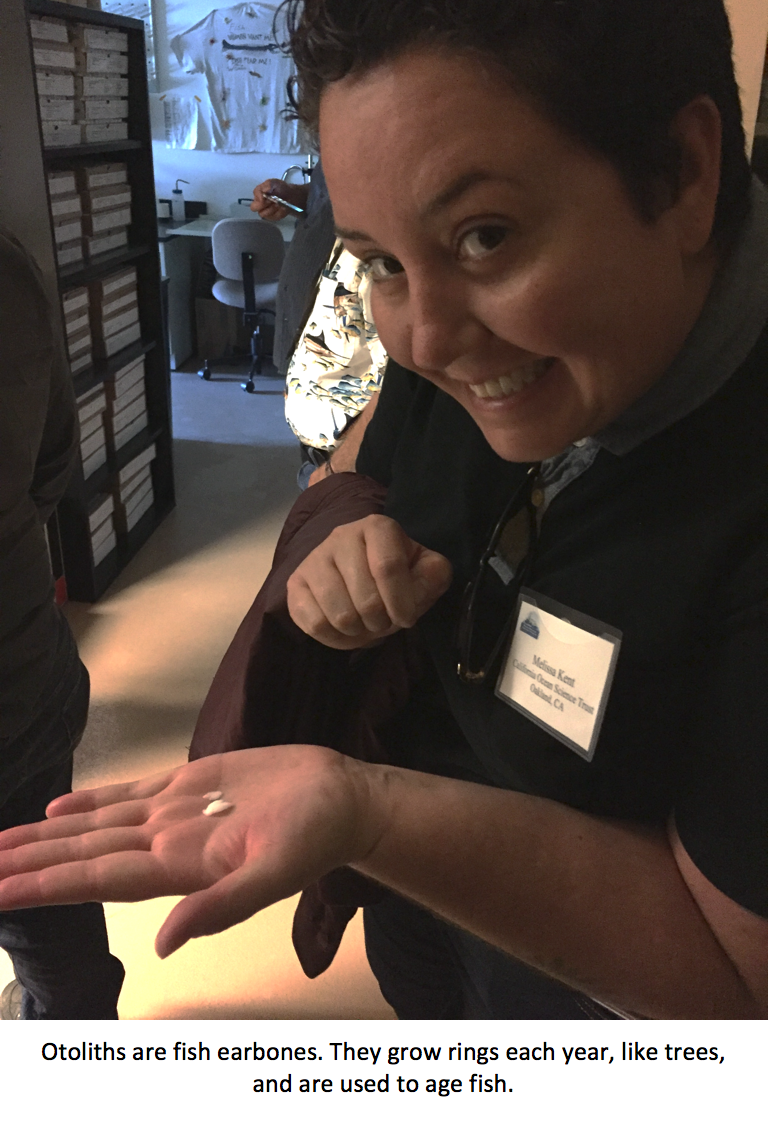Ecosystem-based management. Stakeholder engagement. Best available science.
These phrases and frameworks came up a lot in graduate school, but what do they mean in the real world? How are they put into practice? These questions were the catalyst for my interest and eventual participation in the California Sea Grant State Fellowship program.
 For my fellowship year, I am hosted by California Ocean Science Trust (OST), a non-profit organization that supports managers and decision-makers with sound science. At seven months in, I’ve had the opportunity to work within a wide variety of project areas (like climate adaptation and marine protected areas) and to advance my professional development through trainings and workshops. I’d like to focus on one training in particular for this blog—Marine Resource Education Program: West Coast (MREP)—because it illuminates some of the real-world context I have been looking for.
For my fellowship year, I am hosted by California Ocean Science Trust (OST), a non-profit organization that supports managers and decision-makers with sound science. At seven months in, I’ve had the opportunity to work within a wide variety of project areas (like climate adaptation and marine protected areas) and to advance my professional development through trainings and workshops. I’d like to focus on one training in particular for this blog—Marine Resource Education Program: West Coast (MREP)—because it illuminates some of the real-world context I have been looking for.
MREP is a unique program. It was created by fisherman in 2001 to empower the community to actively and effectively participate in marine fisheries management. And although the program’s primary audience is the fishing community, it is open to managers, policy-makers, and others that work in fisheries, providing a wide range of perspectives. It also enables the fishing community to meet and interact with decision-makers in a neutral setting. Being new to the fisheries world, I needed some background information to better understand my fisheries work at OST. I also wanted to meet people in the fishing industry, learn about their work, and listen to their experiences. So off to MREP I went!

The trainings are intensive and multifaceted, consisting of a series of two, three-day workshops. The first, held in Santa Cruz, CA in August, focused on federal fisheries science, with in-depth presentations on fishery dependent and independent data collection, stock assessment and modeling, among others. I particularly enjoyed an activity designed to demonstrate fishing efforts with different management scenarios (like catch quotas), and our field trip to the Southwest Fisheries Science Center. We toured the lab and learned about fish tagging, trawl survey gear, and how to age fish using otoliths (ear bones).
The second workshop will be held in Portland, OR in October, and will focus on federal fisheries management and the Pacific Fishery Management Council process.
The information I have learned is fascinating, but the real value of the MREP program is the personal connections I have made. Listening to people in the fishing industry talk about their experiences and discuss their issues has made phrases like “stakeholder engagement” more concrete for me, and will have a lasting effect on my work going forward. This is but one example of the many experiences I have had at OST so far, and I am a better professional for it.
Written by Melissa Kent



